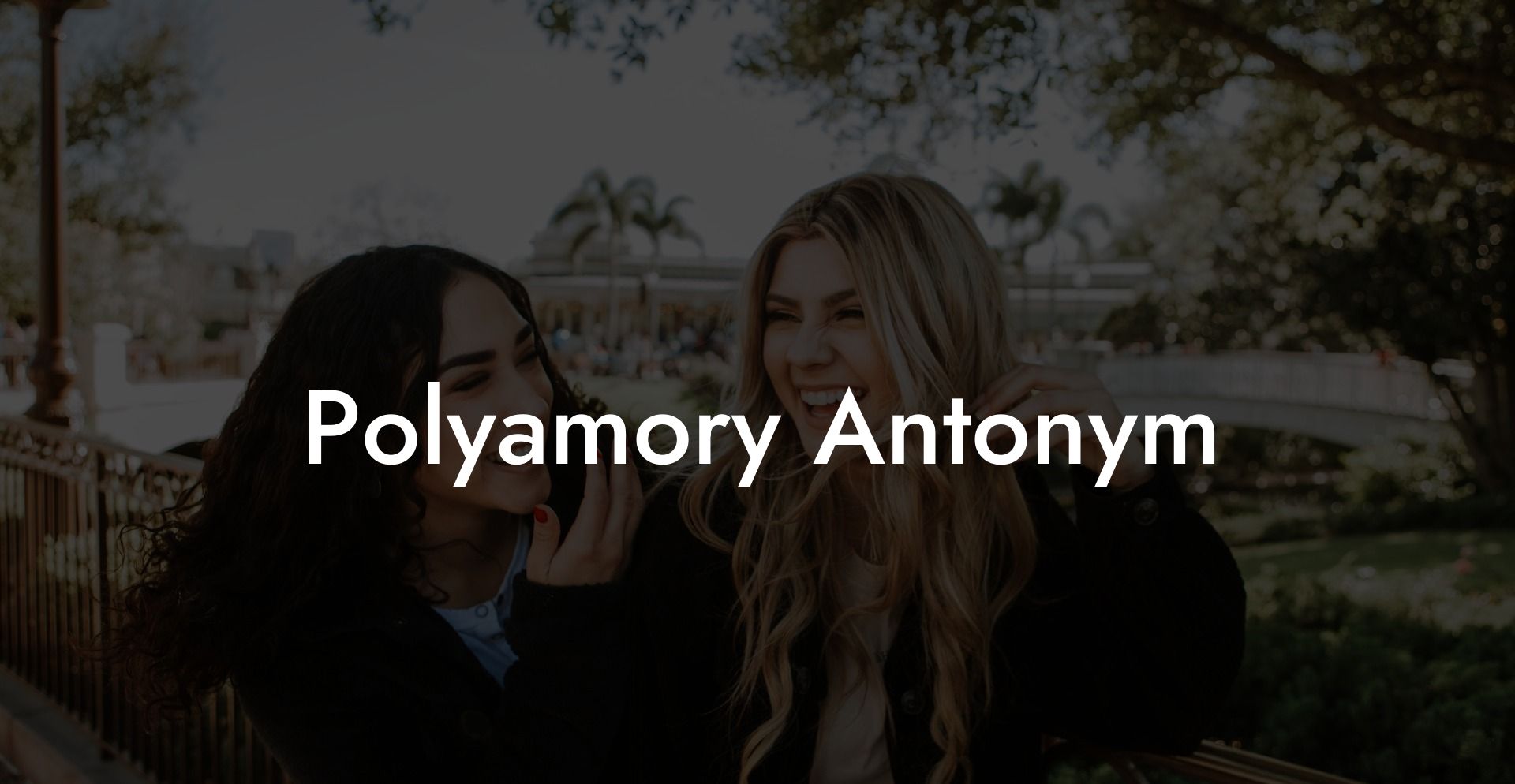Polyamory is a term that has gained increasing visibility in recent years. Broadly defined as the practice of engaging in multiple romantic relationships simultaneously, with the consent of all parties involved, it appeals to many looking for alternative forms of relationship structure. However, what is the opposite of polyamory – what's the polyamory antonym? This article examines the various terms that can be considered antonyms to polyamory and how they relate to the ever-evolving world of modern relationship structures.
Polyamory Antonym Table of Contents
Monogamy: The Antonym for Polyamory
When it comes to finding the polyamory antonym, most people would point to monogamy. In a monogamous relationship, individuals are committed to one romantic partner at a time, with exclusivity being the key defining factor. Monogamy has been the predominant relationship structure in many cultures for centuries and is still widely practiced today.
Types of Monogamy
-
Serial Monogamy: This is a relationship pattern where an individual has a series of monogamous relationships, one after another, throughout their life.
-
Lifelong Monogamy: In this form, an individual commits to one partner for their entire life, often signified by marriage.
Other Antonyms or Distinctions
While monogamy is commonly understood as the polyamory antonym, there are a few other terms that warrant a closer look when exploring the spectrum of non-monogamous relationships. These other relationship structures may not be direct antonyms to polyamory but can provide further context to the multifaceted world of modern relationships.
Swinging
Swinging refers to couples who engage in sexual activities with other couples or individuals, typically in a social or recreational context. Though swinging can be considered a form of non-monogamy, it doesn’t quite meet the criteria for polyamory, as it primarily focuses on sexual exchanges and usually doesn’t involve emotional connections outside of the primary couple.
Monogamish
Popularized by sex and relationship columnist Dan Savage, "monogamish" describes couples who maintain a primary, committed relationship while allowing for occasional sexual experiences outside of the couple. This term serves as a middle ground between traditional monogamy and polyamory, as it acknowledges the potential for desire outside of a primary partnership without engaging in full-blown emotional relationships with multiple partners.
Open Relationships
An open relationship is another form of non-monogamous relationship structure that allows for partners to engage in romantic or sexual relationships with others outside of their primary commitment. While polyamory can be considered a specific type of open relationship, not all open relationships are polyamorous. Open relationships may differ from polyamory in the level of emotional and romantic involvement with other partners, or the extent to which outside relationships are encouraged.
Polyamory Antonym Example:
For example, Sarah and Jack are in a monogamous marriage. When discussing their relationship boundaries, they agree to define themselves as “monogamish” in order to occasionally explore sexual experiences with others. This approach allows them to satisfy their curiosity without committing to engaging in multiple emotional relationships, as in polyamory. This arrangement might involve occasional swinging experiences together as a couple or one-off encounters independently.
In conclusion, while monogamy is the most widely recognized polyamory antonym, understanding the spectrum of relationship structures provides us with a richer understanding of human relationships and challenges traditional norms. Whether you're engaged in monogamy, polyamory, or somewhere in between, it's crucial to communicate openly and honestly with your partner(s) to create a relationship that works for you. If you found this article engaging and informative, please consider sharing it with others who may be interested in exploring the range of relationship structures. Be sure to check out our other articles at The Monogamy Experiment to deepen your understanding and expand your relationship vocabulary.













